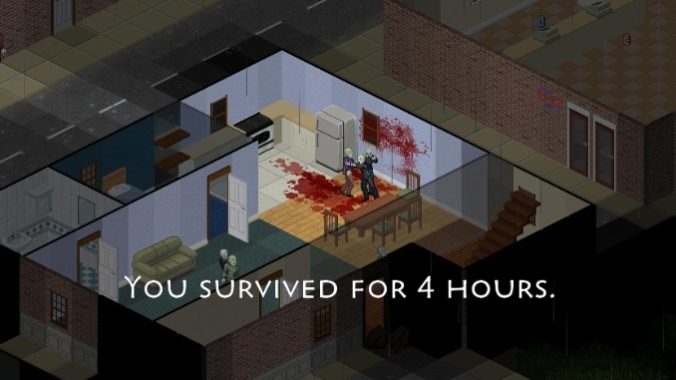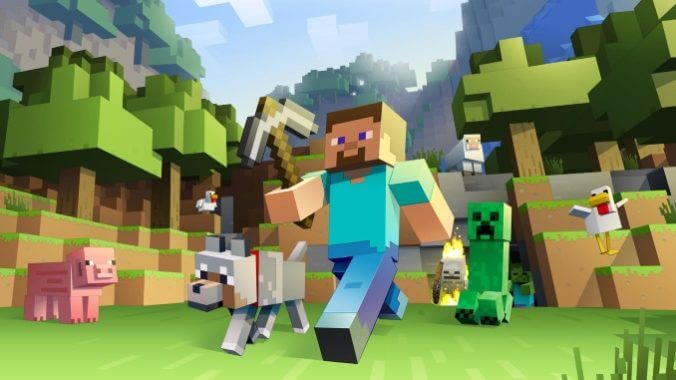Minecraft and its consequences have been disastrous for the Steam Front Page. I despise most survival games. If I wanted to spend all my time managing meters, I’d just play Street Fighter. Unfortunately, they’ve gotten so popular that mechanics have started making their way into non-survival games. Steam is overrun with mediocre early-access survival sandboxes, all of which compete to have a portion of the success Ark Survival Evolved has.
Aside from Minecraft, the only survival game that I’ve enjoyed is Project Zomboid. It’s not that different mechanically from the genre aside from an isometric perspective, but it never wasted my time with superfluous mechanics and game design choices in a way the rest of the genre seems insistent upon. It also helped me realize the trends I hate the most about survival games.
The “grind” feels comparatively worse than in other genres
Grinding is a divisive subject. The grind is a defining aspect for some MMORPG players. I’m not a fan of it, but I recognize it’s a necessary evil sometimes. It may be soul-numbing to grind for a better-rolled gun in Destiny 2, but at least I’m mowing down hordes of enemies while doing it.
Gathering resources is the single least engaging grind in gaming. Mining rocks, cutting trees down and fishing feel like a mockery of my time. Holding down the mouse button and waiting for numbers to go up stretches the meaning of gameplay. It’s monotonous at best, or boring at worst.
The resource grind is one of the defining features of survival games, so it feels impossible to solve. There’s a reason why so many guides for survival games look towards automation to solve the resource grind problem. No one likes cutting down trees. It just isn’t fun.
Survival mechanics need to be more than just meters.
Survival/realism mechanics are a relatively popular phenomenon even in non-survival games and it’s baffling. Skyrim has a litany of realism and survival mods, and even has a borderline official survival mode thanks to the creation club. The general sentiment is that survival mechanics make games more immersive, or, in the case of Skyrim, that survival modes add value to the food in the game.
But why does everything have to be immersive? Why must I take time from the rest of the game to hunt down food? Most of the time food and water mechanics just add another health bar for the player to manage. It can be a justification to get out and explore, but in most survival games, it can be trivialized by hoarding or setting up a farm. It’s incredibly petty, but even needing to gather food for long rests in Baldur’s Gate 3 is annoying, but also so easy that it begs the question of why it’s in the game.
Hunger isn’t necessarily a useless mechanic, but it needs to work in tandem with gameplay.
Old school dungeon crawlers like NetHack and Pokemon Mystery Dungeon use hunger as a way to incentivize players to keep progressing faster through the dungeons and to not linger for too long, thus keeping the gameplay on pace. They also provide ways to eat food through the main gameplay loop, so it works in service of the game as opposed to sidetracking players.
Project Zomboid makes food essential by doubling the importance of eating. You need to eat food to avoid becoming malnourished and not die from starvation, but the game also encourages players to eat so their in-game mood is improved and their character can stay physically fit to fight off zombies. It’s more complex to a debatably absurd degree, but it makes the food runs feel like a significant part of the gameplay loop instead of busy work.
Special mention goes to the worst mechanic of all time: weapon durability. It’s irritating in the survival genre, but its proliferation in other games is obnoxious. Why the fuck do players have tools that break in Animal Crossing: New Horizons? It doesn’t add anything meaningful to the game when my watering pot stops working out of nowhere. It’s just wasted time.

Ennui—a.k.a. “And Then What?”
Due to the nature of early-access sandbox games, they tend to have no ending or grand finale to look forward to. You’ve turned your house into a fortress, armed yourself with all the finest gear, and automated the resource grind. Now what? You can keep on grinding, but what’s the point? The game’s over in a sense, but there’s no resolution. The game just kind of dithers on.
With no definitive goal to chase after a certain point of progression, there’s not much reason to stick around. At a certain point, everything becomes busy work. Upgrades are only meaningful if they progress the game. Making busy work less busy isn’t progression.
If reaching the pinnacle of a game’s content just means the tedious stuff is less so, then why play at all? Minecraft figured this over a decade ago by having upgrades that give you access to new locations. It has an area called “The End.” It’s a bit on the nose, but I’ll take a lack of subtlety over a lack of content.
Most of the busy work needs to include what makes the genre appealing.
The best aspect of survival games is the emergent narratives from the freeform gameplay. I don’t have many fond memories of chopping down trees, crafting weapons, or farming, but I remember my friends and I making a base out of an abandoned clinic in Project Zomboid. It’s one of my fondest gaming memories this year, and it made me understand the appeal of survival games for the first time.
Unfortunately, much of the genre is bogged down by boring gameplay and resource management that stifles much of its potential instead of focusing on what works in service of the game. Whether it’s for realism purposes or not, survival mechanics being busy work as opposed to a meaningful gameplay element with multiple solutions is a tragedy, and something game developers need to consider the next time they start planning a survival game.

